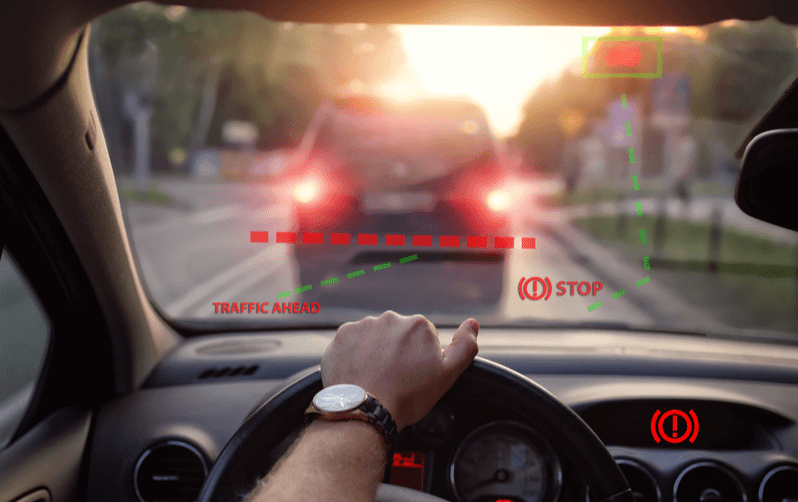Automatic braking systems are computerized safety systems that are designed to detect the position and speed of other vehicles in front of your car. An automated braking system is an active safety system that uses technology to make a judgment and stops the car when it feels it’s necessary.
A comprehensive braking system is conceptually two systems: forward collision warning and automatic braking. Forward collision warning systems alert the driver with audible and visual alerts when a collision may be imminent. Electronic braking systems will alert the driver and apply brakes if necessary to avoid or lessen the effects of a crash.
How Well Do Automated Braking Systems Work?
Some automatic braking systems are designed to stop the vehicle altogether, while others are designed to slow the car to minimize the possible damage from a collision.
AAA has conducted studies on these systems and found that:
- Vehicles designed to stop completely were able to reduce their speed by half. These same vehicles, were able to prevent accidents 40% of the time.
- On the other hand, systems designed to slow the vehicle before possible impact managed to avoid collisions for around one-third of tested vehicles, and were overall only able to reduce their speed by nine percent when driven 45 miles per hour.
The consensus amongst most experts is that these current systems, while helpful, are not yet ready to be relied on wholly. They can help in mitigating possible collisions, but drivers still need to be prepared to react quickly in certain situations. Once alerted by the warning system, drivers do not need to depend on the automatic braking avoid collisions.
Safety Laws and Automatic Brakes
In 2016, 20 automakers pledged to have all their automobiles come standard with automatic braking systems. The new trend in safety means that around 99% of all cars in the United States are going to have automated brakes in place.
Sooner or later we will all be driving a vehicle with automatic braking.
Use Your Best Judgement on the Road to Avoid Accidents
Of course, these systems are stepping stones toward the path of fully autonomous vehicles. Sometime shortly, drivers will be in cars that will steer, accelerate, and brake automatically without the need for driver intervention in the ordinary course of things. Until then, drivers should continue to benefit from the continually improving technology.
It’s no doubt that technology is making driving safer every day. However, you shouldn’t completely rely on technology behind the wheel. It’s still necessary to practice safe driving habits on your own. Be wary of drivers that are distracted due to automated braking systems and other technologies.
If you are in a car accident and you suspect distracted driving, it’s important to seek legal counsel. E. Orum Young has over 35 years of experience fighting for individuals involved in car accidents in Northeast Louisiana. Contact our office at (318) 450-6453 for a free case review today. We are available to speak 24/7.





